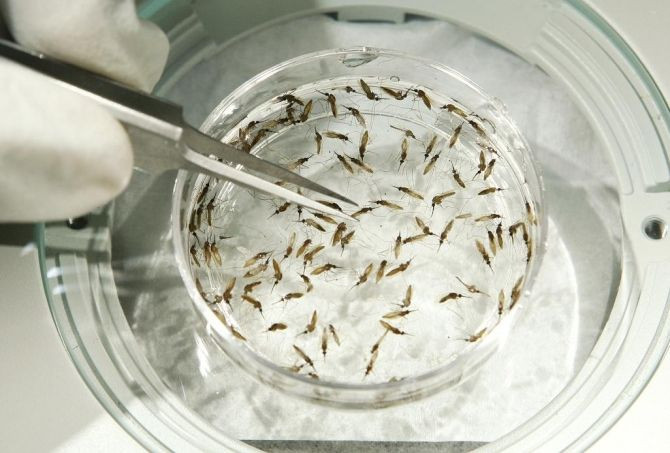Malaria Death Toll May Be Double What Experts Estimated

Malaria may be killing twice as many people worldwide as experts previously thought, and older children and adults, previously thought to be least susceptible, are also being hit hard with the mosquito-borne disease.
However the malaria death toll which peaked in 2004 at 1.8 million deaths worldwide has since dropped on an average of seven percent each year after big campaigns to distribute bed nets, disinfect homes with insecticide and make better drugs available.
The World Health Organization reported that around 655,000 people died from malaria in 2010 in December, but researchers using newly available data and modeling tools said that the disease’s death toll was actually at about 1.2 million, nearly twice the number found by the WHO.
University of Washington researchers found that out of the 1.2 million people who died from malaria two years ago, children between the ages of 5 and 14 accounted for more than 78,000 deaths and more than 445,000 people ages 15 and older died from the disease.
Researchers had previously thought that the disease mainly kills children under five-years-old and pregnant women, but the current analysis showed that 42 percent of all malaria deaths in 2010 were in people aged five and older.
"You learn in medical school that people exposed to malaria as children develop immunity and rarely die from malaria as adults," said lead author Dr. Christopher Murray. "What we have found in hospital records, death records, surveys and other sources shows that just is not the case."
Researchers said that the increase in both funding and in attention to policy in the past decade has made a dramatic impact in the battle against malaria, but the current findings show a need for health professionals to protect everyone against the disease and not just children under the age of five and pregnant women.
Scientists analyzed the data on malaria deaths from 1980 to 2010, including information not used in previous studies, and statistically adjusted for deaths that may have been misclassified. Then they developed numerous models to predict the number of people to have died of malaria.
The findings were published in The Lancet on Wednesday.



























